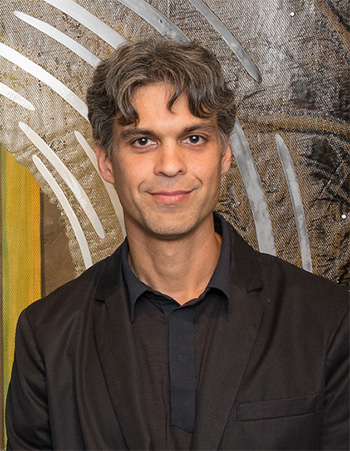Campus News
Enrico Ramirez-Ruiz chosen for prestigious Julio Cortázar Latin American Chair
Enrico Ramirez-Ruiz, professor of astronomy and astrophysics at UC Santa Cruz, has been selected to hold the Julio Cortázar Latin American Chair at the University of Guadalajara, Mexico, for 2022.

Enrico Ramirez-Ruiz, professor of astronomy and astrophysics at UC Santa Cruz, has been selected to hold the Julio Cortázar Latin American Chair at the University of Guadalajara, Mexico, for 2022.
Established in 1994 by the eminent writers Carlos Fuentes and Gabriel García Márquez, the Julio Cortázar Latin American Chair is one of the most prestigious recognitions for artists and intellectuals in Latin America. The activities of the chair include a free public lecture and a multi-day conference for specialists and students.
“I am honored to be one of a handful of Latin American scientists to be recognized by this prestigious chair,” said Ramirez-Ruiz, a theoretical astrophysicist who holds the Vera Rubin Presidential Chair for Diversity in Astronomy at UCSC.
Ramirez-Ruiz will give the public “Master Conference” on May 4 at the University of Guadalajara. His talk is titled, “On the galactic bestiary and the origin of the elements.” A leading authority on some of the most dramatic events in the universe, Ramirez-Ruiz studies violent astrophysical phenomena such as collisions, mergers, and disruptions of stars—especially those involving compact objects like black holes, neutron stars, and white dwarfs.
Ramirez-Ruiz has received many awards and honors, both for his scientific achievements and for his leadership in supporting and mentoring students from underrepresented groups in the sciences. A member of the American Academy of Arts and Sciences and the Mexican Academy of Sciences, he was honored by the White House in February with a Presidential Award for Excellence in Science, Mathematics and Engineering Mentoring.
Fuentes and García Márquez founded the Julio Cortázar Latin American Chair with funds from a scholarship program established by the Mexican government. They wanted to pay tribute to Cortázar, one of the greatest Latin American writers of the 20th century, and provide a forum for dialogue and reflection on Latin American society and culture. Previous holders of the chair include Toni Morrison, José Saramago, Noam Chomsky, Elena Poniatowska, Jared Diamond, and Ernesto Cardenal.